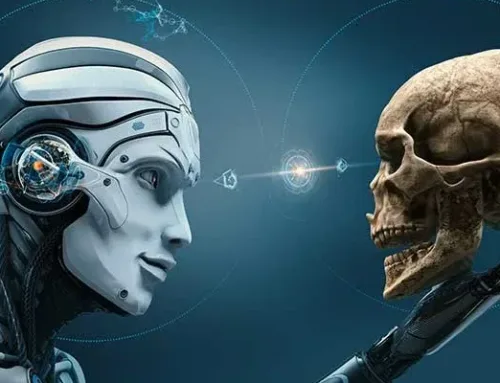Australian Bioethicist Walter Veit
Woe unto them that call evil good, and good evil; that put darkness for light, and light for darkness; that put bitter for sweet, and sweet for bitter!
Isaiah 5:20 — King James Version
Bioethicist Says Infanticide is OK Because Killing Babies in Abortions is OK
March 2, 2022
By Wesley Smith / Washington, D.C.
Reprinted from LifeNews
In our current episode of let’s-allow-baby-killing, an Australian bioethicist named Walter Veit comes to the defense of infanticide proponents who claimed there is no moral difference between late term fetuses and newborn babies. Veit (pictured) claims that the morality of how we treat children should be judged no differently than how we access animal welfare. From “Does Birth Matter?”
Animal welfare researchers have long recognised that animal ethics detached from our knowledge of biological science is at best ill-informed and at worst harmful. Cases involving humans should not be treated any differently.
In other words, the ethics of treating a rat or a zebra fish will be different from a chimp because of their differing capacities. Veit thinks the treatment of humans should be judged in the same fashion, meaning that there is no inherent dignity to a human life that must be respected (sometimes called the “quality of life ethic”).
And since there is no clear biological distinction between a late-term fetus and a born baby, it is okay to kill away:
If the biological sciences reveal that there is no morally salient difference between a newborn and a fetus, that is, that they are almost at the same developmental stage, one must abolish the intuitively compelling idea that birth matters morally. It doesn’t.
Veit argues that the “inherent wrongness of abortion” must be rejected. Otherwise, terminations will all be outlawed, as has been attempted in Poland:
But this is precisely what moves religious groups such as those in Poland to frighteningly go ahead and attempt to outlaw all abortions. The biological facts about the physiology of the fetus are pushed aside in favour of an intuition about the moral wrongness of abortion. . . . Their arguments fail to demarcate a morally salient difference shortly before and shortly after birth.
Huh. And here we have always been told that abortion is justified by the autonomy of the pregnant woman controlling her body.
But a born baby isn’t in anyone’s body. Hence, the argument being made here is for a right not to be a parent based on the baby’s similar capacities and equal disposability of a fetus.
And if we can kill humans before they become persons, why not also if they lose these capacities through illness, injury, or age? Why not the” right not to be a spouse” or “the child of an incapacitated adult?” Indeed, isn’t that the very kind of demise Michael Schiavo imposed on Terri under the pretense of ceasing unwanted medical treatment?
Closer to the point, 46 Senate Democrats just voted to legally require the availability abortion to the moment of birth. Veit and many in bioethics would insist this should also mean access to infanticide. Come to think of it, so did former Virginia governor Ralph Northam, at least via neglect after birth. And what would stop that widening of the killable caste once the Democrats got their way?
Here’s the bottom line: Once human life is denigrated as morally irrelevant, what difference does birth make? The question answers itself.
LifeNews.com Note: Wesley J. Smith, J.D., is a special consultant to the Center for Bioethics and Culture and a bioethics attorney who blogs at Human Exeptionalism.







Leave a Reply, please --- thank you.